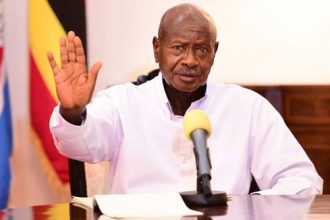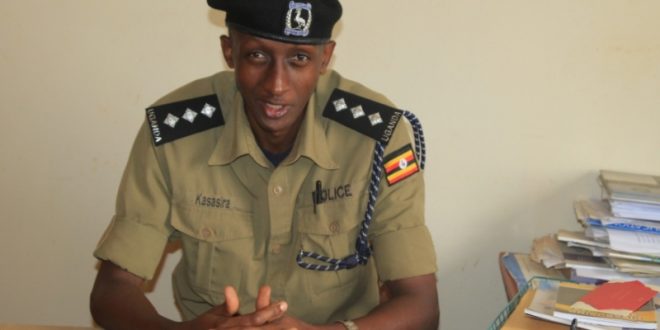Amuru Uganda –
29 years ago, on April 20, 1995, an attack orchestrated by Joseph Kony under the command of Vincent Otti, a native of Atiak and then a senior commander in the Lord’s Resistance Army who knew of the security lapse and terrain, massacred over 300 innocent people in Atiak Internally Displaced Camps (IDP) in Atiak Sub-County Amuru District, which by then was Gulu District.
The method of the killing was very cruel, as men and boys, women, girls, and expectant mothers were taken to the banks of Ayugi, a stream in Pabbo Sub-County, just 15 kilometers from Atiak Sub-County, where they were then sporadically shot at by LRA Rebels; some survived while others didn’t make it alive.
One of the survivors narrates the horror during the anniversary of the brutal, inhuman, and senseless massacre and killing of innocent people that left more than 300 people dead in Atiak IDP, including 48 students and two teachers from Atiak Technical School. The majority of the deceased were buried in a mass grave near Ayugi Banks, abducting dozens before retreating to their hideouts.
Evaline Okot Fred, Chairperson at the Atiak Massacre Site, says it was this morning of April 20, 1995, when the people of Atiak woke up to the sound of motor bombs and gun fire. The LRA had entered and attacked the town from the east, overrunning the LDU detached at Palabel and instantly killing 11 soldiers.
In the town center, the Lord’s Resistance Army started abducting, burning houses, and shooting at sight those who were trying to escape. The whole town went up in smoke and fire, young children wailing and running in disarray looking for their parents, goats, sheep, and chickens caught up in the burning houses.
Shops were burning up with goods and merchandise inside. Atiak Technical School hostel and offices were attacked, students were abducted, and offices were burned down with all their property. The whole town was in horror and hell. The abducted civilians were matched towards the Ayugi River, where hours later they were shot and killed mercilessly and gruesomely as some of their relatives were left to see and at the same time asked to clap, sing, and adore them. It was a horror—the darkest time and moment for the people of Atiak. ”May God rest their souls in peace” recounts the horror of the event.
“As we commemorate this day, what do we reflect on as the people of Atiak, Acholi, and Uganda at large? We come together to remind ourselves and celebrate the lives of our departed and loved ones, and we continue to pray for their souls and ask God to rest their souls in peace,” Okot said.
Okot explains in an interview that this day reminds them to ask God’s forgiveness and reconciliation among themselves for peaceful coexistence.
He cautioned the government and other stakeholders that the victims and survivors of the brutal massacre are still alive and in need of help, adding that there is no need to hide faces from solving their plight as they are truly in need of help.
The Atiak massacre, one of the first and most brutal by the LRA, has attracted national and international attention and condemnation. Despite the arrival of foreign diplomats and the President of Uganda sending 7,200 iron sheets as emergency relief aids, no significant assistance has been directed to the victims and survivors to fully rehabilitate their lives, he said.
This year’s Memorial Day theme was to remind the government, stakeholders, and organizations that the victims and survivors of this brutal act are still present and need help.
“We should promote peace, love, and dialogue to prevent such acts from happening again. We must also console and share our love for the victims and survivors,” he said.
He revealed that the Atiak Massacre site has prepared a comprehensive list of victims and survivors, including shops, property, students, and staff killed.
He, however, says the Central Organizing Committee has written a concept note to encourage goodwill, government, and organizations to stand up for the forgotten victims, adding that the survivors have also requested General Charles Otema Awany to address the issue of the oxen-less Ox-Plough.
In memory of the massacred people, a request has been made to construct a road from both the Atiak and Pogo sub-counties leading to the massacre site, making it accessible to visitors and directing them to another monument.
They further requested Gen. Otema remind the president of the remaining 180 million shilling pledge made for Atiak Technical School and the bus promise for the school to replace the one used during the liberation struggle. The Atiak Massacre Site is a call for action for the forgotten victims and survivors.
Gen. Charles Otema Awany, who was the chief guest during the commemoration day, says he will follow up on the unfulfilled pledges made by the president and also the school bus that was taken during the time of liberation struggles.
He urges the communities to avoid segregating children born in captivity as all are the same, and on the other hand, he promises to follow up on the issue of the road construction.
He urges, survivors to have the heart for forgiveness so that peace prevails among the communities, rather than creating enmity.
Kenneth Okot, a survivor of the Atiak Massacre and now the Mayor of Atiak Town Council, thanked the communities for their resilience and perseverance despite barriers and obstacles that arose.
Benson Odoki Alimo, Justice and Reconciliation Project, said in an interview that they have started profiling children born in captivity in the area of Amuru as their target area.
He further says children born in captivity should not be discriminated against, and we need to give them the same dignity and good reception, even though they are regarded as children who don’t have a home.
Betty Lanyero Oceng, the head teacher of Lwani Memorial College, revealed that of the 408 students enrolled in the school, among them are grandchildren of those killed who experienced problems with school fees.
She, however, urges parents to take their sons and daughters for training since technical education is important.



















